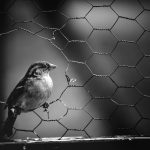Gnats are small, flying insects that belong to various families within the order Diptera, including Sciaridae, Mycetophilidae, and Cecidomyiidae. They are commonly found in moist environments and are known for their swarming behavior. While some gnat species can bite, many are harmless to humans and animals.
In chicken coops, gnats can be a nuisance, causing stress and discomfort to the birds. Large swarms of gnats may lead to decreased egg production and overall poor health in chickens due to the constant irritation and disturbance they cause. Some gnat species, such as black flies (Simuliidae), can transmit diseases to poultry, including avian leucocytozoonosis.
However, most gnat species do not pose a significant health risk to chickens. To effectively prevent and control gnat infestations in chicken coops, it is important for poultry keepers to understand the life cycle and preferred habitats of these insects, as well as implement proper sanitation and moisture control measures.
Table of Contents
- 1 Understanding the Behavior and Habits of Gnats
- 2 Natural Methods to Repel Gnats from Chickens
- 3 Using Environmental Modifications to Minimize Gnat Presence
- 4 Commercial Products and Treatments for Gnat Control
- 5 Monitoring and Preventing Gnat Infestations in Chicken Coops
- 6 Conclusion and Summary of Effective Gnat Prevention Strategies for Chickens
- 7 FAQs
- 7.1 What are gnats and why are they a problem for chickens?
- 7.2 How can I keep gnats away from my chickens?
- 7.3 Are there any natural remedies to keep gnats away from chickens?
- 7.4 What are some signs that my chickens are being bothered by gnats?
- 7.5 Are there any health risks for chickens associated with gnats?
Key Takeaways
- Gnats can have a significant impact on the health and well-being of chickens, causing irritation, stress, and potential disease transmission.
- Understanding the behavior and habits of gnats is crucial for effective prevention and control strategies, as they are attracted to moisture, organic matter, and warm temperatures.
- Natural methods such as using essential oils, herbs, and diatomaceous earth can help repel gnats from chickens without the use of harmful chemicals.
- Environmental modifications such as proper waste management, ventilation, and maintaining dry bedding can minimize gnat presence in chicken coops.
- Commercial products like insecticides and fly traps can be used as additional measures for gnat control, but should be used with caution around chickens.
Understanding the Behavior and Habits of Gnats
What Attracts Gnats to Chicken Coops?
Gnats are attracted to moisture, decaying organic matter, and standing water, making chicken coops an ideal breeding ground for these pesky insects. They are most active during the warmer months and are often found near bodies of water, such as ponds or streams. Gnats are also attracted to light, which is why they are commonly found swarming around outdoor lighting fixtures.
The Rapid Reproduction Cycle of Gnats
Gnats are known for their rapid reproduction cycle, with females laying hundreds of eggs at a time. These eggs hatch into larvae, which then develop into adult gnats in a matter of days. This rapid lifecycle means that gnat populations can quickly multiply and become a significant problem for chickens.
Effective Control Measures
In order to effectively control gnats, it is important to target both the adult insects and their larvae. By disrupting their breeding and feeding grounds, chicken owners can reduce the likelihood of gnat infestations and protect their chickens from the negative impact of these pests. By taking proactive steps to minimize the presence of gnats, chicken owners can create a healthier and safer environment for their flock.
Natural Methods to Repel Gnats from Chickens

There are several natural methods that can be used to repel gnats from chickens and their coop. One effective approach is to plant gnat-repelling herbs and flowers around the coop, such as lavender, mint, and marigolds. These plants emit strong scents that are known to deter gnats and other flying insects.
Additionally, using essential oils such as citronella, eucalyptus, or lemongrass can help repel gnats when applied to the coop or directly on the chickens. These natural repellents are safe for chickens and provide a non-toxic alternative to chemical insecticides. Another natural method for repelling gnats is to introduce predator insects that feed on gnats and their larvae.
For example, introducing predatory nematodes or certain species of predatory mites can help control gnat populations by targeting their larvae in the soil. Additionally, encouraging natural predators such as birds, bats, and dragonflies to frequent the area around the coop can help keep gnat populations in check. By utilizing natural methods to repel gnats, chicken owners can create a more harmonious and sustainable environment for their flock.
Using Environmental Modifications to Minimize Gnat Presence
Making environmental modifications to the chicken coop and surrounding area can help minimize gnat presence and reduce the likelihood of infestations. One effective modification is to improve drainage and reduce standing water around the coop. This can be achieved by filling in low-lying areas, fixing leaky faucets or hoses, and ensuring that water containers are properly maintained and free of debris.
By eliminating sources of standing water, chicken owners can significantly reduce the attractiveness of the area to gnats. Another environmental modification that can help minimize gnat presence is to install screens on windows and vents to prevent gnats from entering the coop. This can help create a barrier between the chickens and the outside environment, reducing the likelihood of gnat infestations.
Additionally, using yellow bug lights instead of white lights around the coop can help minimize gnat attraction, as gnats are less drawn to yellow light. By making these environmental modifications, chicken owners can create a less hospitable environment for gnats and protect their flock from potential harm.
Commercial Products and Treatments for Gnat Control
In addition to natural methods and environmental modifications, there are also commercial products and treatments available for gnat control in chicken coops. One option is to use insecticide sprays or dusts that are specifically formulated for controlling gnats. These products can be applied to the coop and surrounding area to target adult gnats and their larvae.
It is important to carefully follow the instructions on these products and ensure that they are safe for use around chickens. Another commercial option for gnat control is the use of gnat traps or sticky tapes that are designed to attract and capture adult gnats. These traps can be strategically placed around the coop to help reduce gnat populations without the use of chemical insecticides.
Additionally, there are commercially available gnat repellent sprays that can be applied directly to the chickens to provide protection from gnat bites. It is important for chicken owners to carefully consider the potential risks and benefits of using commercial products for gnat control, especially when it comes to the health and safety of their flock. Consulting with a veterinarian or poultry specialist can help ensure that any commercial products or treatments used are appropriate for chickens and do not pose a risk to their well-being.
Monitoring and Preventing Gnat Infestations in Chicken Coops

Identifying Potential Issues
Regular monitoring of gnat populations in and around the chicken coop is crucial in preventing infestations and protecting the flock from potential harm. This involves inspecting the coop for signs of gnat activity, such as swarms of adult insects or larvae in moist areas, to identify potential issues before they become a major problem.
Minimizing Gnat Attraction and Breeding
Keeping the coop clean and free of decaying organic matter can help minimize gnat attraction and breeding opportunities. This, combined with regular cleaning of water containers, removal of standing water, and proper drainage around the coop, can significantly reduce the likelihood of infestations.
Proactive Measures for a Gnat-Free Coop
Implementing proactive measures can further reduce gnat attractiveness. This includes using natural repellents such as essential oils or predator insects to create a less hospitable environment for gnats. By taking these steps, chicken owners can effectively reduce the likelihood of infestations and protect their flock from the negative impact of these pests.
Conclusion and Summary of Effective Gnat Prevention Strategies for Chickens
In conclusion, gnats can be a significant nuisance and potential health threat to chickens when they infest a coop. Understanding the behavior and habits of gnats is crucial for implementing effective prevention and control measures. Natural methods such as planting gnat-repelling herbs, introducing predator insects, and making environmental modifications can help minimize gnat presence in chicken coops.
Additionally, there are commercial products and treatments available for gnat control, but it is important to carefully consider their potential risks and benefits. Monitoring gnat populations and implementing proactive measures are essential for preventing infestations in chicken coops. By taking a comprehensive approach to gnat prevention, chicken owners can create a healthier and more comfortable environment for their flock.
It is important to prioritize the well-being of chickens by using safe and sustainable methods for controlling gnats and other pests in the coop. By doing so, chicken owners can ensure that their flock remains healthy, productive, and free from the negative impact of gnat infestations.
If you’re looking for tips on how to keep gnats away from your chickens, you may also be interested in learning how to turn a shed into a chicken coop. This article from Poultry Wizard provides valuable information on converting a shed into a suitable living space for your feathered friends. Check it out here for helpful insights on creating a comfortable and safe environment for your chickens.
FAQs
What are gnats and why are they a problem for chickens?
Gnats are small, flying insects that can be a nuisance to chickens. They can irritate the chickens, cause stress, and potentially transmit diseases.
How can I keep gnats away from my chickens?
There are several methods to keep gnats away from chickens, including using fly traps, keeping the coop clean and dry, using natural repellents such as herbs and essential oils, and ensuring proper ventilation.
Are there any natural remedies to keep gnats away from chickens?
Yes, natural remedies such as planting herbs like lavender, mint, and basil around the coop, using essential oils like citronella and eucalyptus, and using apple cider vinegar can help repel gnats from chickens.
What are some signs that my chickens are being bothered by gnats?
Signs that your chickens are being bothered by gnats include excessive scratching, restlessness, and agitation. Additionally, you may notice gnats swarming around the chickens’ faces and eyes.
Are there any health risks for chickens associated with gnats?
Gnats can potentially transmit diseases to chickens, and their bites can cause irritation and stress. It’s important to take measures to keep gnats away from chickens to ensure their health and well-being.
Meet Walter, the feathered-friend fanatic of Florida! Nestled in the sunshine state, Walter struts through life with his feathered companions, clucking his way to happiness. With a coop that’s fancier than a five-star hotel, he’s the Don Juan of the chicken world. When he’s not teaching his hens to do the cha-cha, you’ll find him in a heated debate with his prized rooster, Sir Clucks-a-Lot. Walter’s poultry passion is no yolk; he’s the sunny-side-up guy you never knew you needed in your flock of friends!







